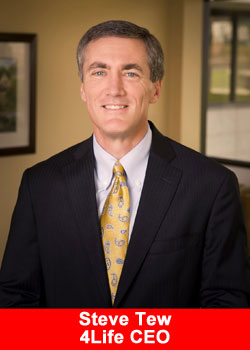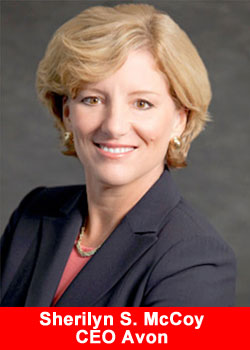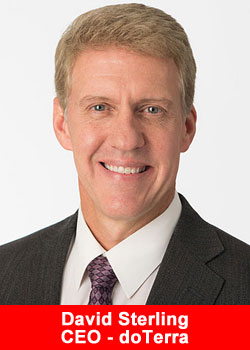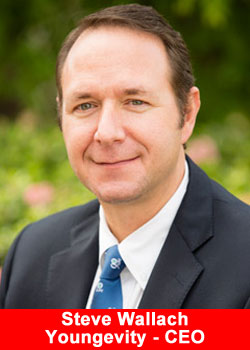![Pyramid Schemes]()
About 4 million Filipinos are in direct selling. They have dreamt of being entrepreneurs but do not have the capital. Some have found financial and personal freedom, while others have become victims of pyramiding scams.
The Direct Selling Association of the Philippines (DSAP) shares answers to frequently asked questions about pyramiding companies and those that are legitimate and with sustainable compensation plans.
Question: Using layman’s terms, what is pyramiding and what’s the main difference between legitimate multilevel marketing (MLM) and pyramiding?
Max VP for Asia Joey Sarmiento: Network marketing, or MLM, is a legitimate mode of business wherein products are sold via person-to-person selling instead of the traditional way of selling from a fixed retail location. The objective is to sell products to the end-consumers.
The difference between MLM and direct selling is in the commission system, wherein participants in MLM generally benefit from the sales made by people under their line of sponsorship even if they are several levels deep (e.g., an independent distributor in an MLM earns commissions not only on his/her personal product sales, and not only on the sales of a person personally recruited by him/her, but also on the sales of persons recruited by his/her personal recruits).
Pyramiding on the other hand is generally characterized by people earning primarily from the act of recruiting other people who pay significant registration fees to join the pyramid scheme.
The people who sign up and make the investment in the form of registration fees then try to recoup their investment by recruiting other people into the scheme by enticing them to make similar investments.
Even if the registration fees include products, the total amount of payment is deemed a registration fee or investment as people pay the sum to join the plan rather than to sell the products to ultimate consumers.
Pyramiding is illegal because it is a money game. Profits are derived primarily from participants’ entry fees, and the income is dependent on the participants slot or position within the organization rather than the ability to sell the products or services.
DSAP, through its membership and compliance committees, makes sure that all its members comply with the guidelines of the Philippine government as embodied in the Consumer Act of the Philippines, the DTI Implementing Guidelines against pyramiding (DTI Administrative order no. 8 Series 2002), and the SEC guidelines against unregistered investments.
For the official list of DSAP member companies, please visit the DSAP website at www.dsap.ph.
Q: Why is pyramiding such a hot topic?
Avon executive director Emie Nierves: Pyramiding is a hot topic because it affects, and has affected, many people regardless of social or financial stature with its promise of easy and immediate financial gain.
In the past, pyramiding has attracted a lot of news when the pyramid scheme fails and people lose their money which, in many instances, are lifetime savings. Yet pyramids continue to happen. It brings a lot of pain and sorrow to the victims.
In addition, the illegal pyramid schemes impact legitimate direct selling and multi-level marketing businesses, which offer earning opportunities to uplift the lives of individuals. Propagators of pyramid schemes tend to liken themselves to legitimate businesses, when they are really very different and can be distinguished through the 8-Point Test of DSAP.
Q: Before Amway won a landmark case against the United States Federal Trade Commission in 1979 that legitimized MLM, Amway was “accused” of pyramiding in the United States in 1975. What was the highlight of the victory that set new standards that defined legitimate MLM companies?
Amway country manager Leni Olmedo: After 4 years of legal proceedings, the US Federal Trade Commission ruled in 1979 that Amway was not an illegal pyramid scheme on account of the fact that the Amway sales and marketing plan is based on retail sales to consumers, and that the following salient features of the Amway plan and rules of conduct provided adequate protection to consumers:
- There is no “headhunting” fee. Bonuses are based on product sales, and distributors must satisfy customers to make the Amway plan work.
- The “70-percent rule” requires distributors to sell at least 70 percent of the total amount of products bought at any given month as a precondition to receiving performance bonus, thus preventing inventory loading.
- The “10-customer rule” requires distributors make at least one sale to each of 10 different customers that month to make him eligible to receive bonuses and commissions on sales made by other distributors in their personal sales organization, thus encouraging retail sales to consumers.
- A “buy-back policy” is offered for unsold inventory.
Jeffrey A. Babener, in his article on “The Landmark Amway Case” in 1999, wrote that “the decision has become known as the “Amway Safeguards Rule” which is currently one of the most significant sets of legal standards by which courts and regulatory agencies determine the legitimacy of an MLM/network marketing/direct sales company.”
The FTC investigations gave Amway and the industry renewed credibility in the long run. Decades after the landmark decision, the above criteria, known as the Amway safeguards test, continues to be used as a model or “gold standard” in differentiating legitimate MLM companies versus illegal pyramids.
Q: What kind of reward schemes are considered “red flags” for potential pyramiding companies?
Symmetry general manager Beth Anana: Joining a company and encouraging new members to have multiple heads or multiple distributorships; the financial rewards being offered based on recruiting others who are similarly offered rewards to recruit others; basing the rewards on recruiting scales and being able to earn on infinite levels without even considering market demands are considered “red flags” for potential pyramiding companies.
Q: Why should one avoid joining a pyramiding company?
Tupperware president Jun Pangilinan: Pyramiding is illegal. It is a scam and a practice of tricking people to register, pay and invest money with a promise of high commissions and earnings, usually without any product being sold.
There is no business basis for earnings and commissions to be paid. Direct selling is all about providing opportunities to earn by selling quality, fair market value products to consumers on a sustainable basis. Selling a product is the business basis of providing individuals commissions, wherein the company shares the profit from the product sold to the individual who worked and sold it to the consumer.
Fair market value and quality of the products sold guarantee sustainable earnings and income which is the intent of direct selling.
Q: What benefits will one get by joining a DSAP accredited company?
Gano I-Touch senior manager Maricar Sandalo: One can create a company image of having a business that is legitimate, fair and sustainable by being a member of DSAP with strict business standards, and a partner of DTI in the campaign against pyramiding.
One can also enjoy the benefit of having a concrete means of correcting negative practices in the field by distributors of other DSAP companies, acting on their own, all in the spirit of dialogue and reconciliation and guided by a strict code of ethics.
Another is to learn from the best practices and successful projects of other DSAP companies willing to share in the regular forums of the association. DSAP provides a good counterpoint against the illegitimate pyramiding companies which are creating a bad image to the industry.
Finally, it helps boost the government’s campaign for inclusive growth, lifting more people from poverty by creating an army of entrepreneurs to help themselves and the national economy.
Q: How can one be sure they are not joining a pyramiding company?
Sundance operations manager Kevin Yu: Pyramiding companies survive by disguising themselves as legitimate direct selling or MLM companies with hopes of taking advantage of unsuspecting consumers.
People should be mindful of the companies they join so they won’t be easily victimized. In order to help, DSAP came up with the 8-point Test—a series of questions that can differentiate a legitimate direct selling company from a pyramiding one:
- Is there a product?
- Are commissions paid on sale of products and not on registration/entry fees?
- Is the intent to sell a product not a position?
- Is there no direct correlation between the number of recruits and compensation?
- If recruitment were to be stopped today, would the participants still make money?
- Is there a reasonable product return policy?
- Do products have fair market value?
- Is there a compelling reason to buy?
If the answer to all the questions is YES, then the company being evaluated is a legitimate company. But if the answer to even just one question is NO, then there is a high probability that it is a pyramid scam.
Q: If a company has legitimate products and encourages retailing, are they automatically legitimate MLM? Why or why not?
Nu Skin’s sales and operations director Arlene Asidao: Retailing to consumers of legitimate and safe products, whose claims have been substantiated and that are registered with and approved by the authorities for selling in the Philippines, is an essential characteristic of a legitimate MLM company.
A legitimate MLM company has products priced at fair market value, wherein customers routinely buy the products without joining the company as a distributor; normally has reasonable refund policy for retail customers; and any unsold products can be bought back by the MLM/direct selling companies whether or not a distributor decides to quit the business; and compensation is tied to the sales of products and not based on the number of recruits signing up.
Q: What are remedies if one discovers that the company he or she joined is actually a pyramiding company?
Direct Shopping president Raymon Gabriel: For any assistance, you may contact DSAP through 6383089 or e-maildsap.ph@gmail.com.
DSAP is the first line of defense to help determine pyramiding. Complaints can be submitted to DTI.
Q: How can government agencies like the DTI and/or SEC clip the wings of pyramiding firms?
DSAP lawyer Errol Palaci: Because pyramiding schemes prey on the ignorant, a continuous and aggressive information and education campaign by the government against these types of schemes must be given priority.
Moreover, the government can take a quicker and more decisive action on reports of pyramiding schemes. We do not need to wait until people have lost their money. As soon as queries and reports are received, then the government should investigate at once and put a stop to the schemes.
(The author is chair of marketing training company Mansmith and Fielders Inc.. For the complete interview, as well as interview with other thought leaders, please visit www.josiahgo.com)










d%20Global%20Network/Fabio-Galdi.jpg)
d%20Global%20Network/Moscow.jpg)






